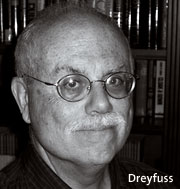July/August 2006 Contributors
 (“Breeder Reaction“) is fascinated by the ways we build our families in the United States, and the general lack of public discussion surrounding them. A contributing writer for the New York Times Magazine, she is the author of They All Laughed at Christopher Columbus, which chronicles Gary Hudson’s quest to build the first civilian spacecraft, and coauthor of Crib Notes, a cradle-side companion of facts and charts for new parents. Weil’s work has appeared in Time and Rolling Stone and on National Public Radio’s “This American Life.” She lives in San Francisco. Originally a New York City tattoo artist, (“Souls on Ice“) has expanded from skin to paper. Her illustrations have appeared in publications such as The New Yorker, the New York Times, and Time. (“Souls on Ice“) is a staff writer for the Washington Post. She began reporting on infertility and poverty in 2003, when, on assignment, she found that low income and limited access to health care exacerbate fertility problems. Reader response to the piece was intense and strongly mixed: “Some sent in donations for women trying to conceive, and then others wrote angry letters to the effect that the poor bred quite enough, thank you, and didn’t need more help doing so,” says Mundy. “With today’s technologies, trying to have a family can be as inflammatory as trying not to have one.” She is at work on Everything Conceivable, a book about assisted reproductive technology and its impact, slated for publication in 2007.
(“Breeder Reaction“) is fascinated by the ways we build our families in the United States, and the general lack of public discussion surrounding them. A contributing writer for the New York Times Magazine, she is the author of They All Laughed at Christopher Columbus, which chronicles Gary Hudson’s quest to build the first civilian spacecraft, and coauthor of Crib Notes, a cradle-side companion of facts and charts for new parents. Weil’s work has appeared in Time and Rolling Stone and on National Public Radio’s “This American Life.” She lives in San Francisco. Originally a New York City tattoo artist, (“Souls on Ice“) has expanded from skin to paper. Her illustrations have appeared in publications such as The New Yorker, the New York Times, and Time. (“Souls on Ice“) is a staff writer for the Washington Post. She began reporting on infertility and poverty in 2003, when, on assignment, she found that low income and limited access to health care exacerbate fertility problems. Reader response to the piece was intense and strongly mixed: “Some sent in donations for women trying to conceive, and then others wrote angry letters to the effect that the poor bred quite enough, thank you, and didn’t need more help doing so,” says Mundy. “With today’s technologies, trying to have a family can be as inflammatory as trying not to have one.” She is at work on Everything Conceivable, a book about assisted reproductive technology and its impact, slated for publication in 2007.

(“Waiting to Happen“) is a project manager with the Center for Public Integrity in Washington, D.C. Long interested in regulatory agencies, he began covering aviation safety six years ago for U.S. News & World Report. (“Waiting to Happen“) is a New York-based investigative reporter and television producer. His work has been featured on Frontline and 60 Minutes. (“Three Days in Rome“) is a senior correspondent for The American Prospect. Reporting her piece on Iran intelligence has been a

multi-year adventure for Rozen, with surprising avenues and murky rabbit holes along the way. “Understanding the forces that shape a foreign policy,” she says, “has far less to do with what’s really happening in, say, Iran than what the people here who influence the policy believe is happening, and think they could make happen.” (“Next We Take Tehran“) is the author of Devil’s Game: How the United States Helped Unleash Fundamentalist Islam. He is a Mother Jones contributing writer, and his work frequently appears in The

Nation, The American Prospect, and Rolling Stone. (“Rock the Junta“) says his favorite musician is Neil Young “because of the sounds he makes come out of his guitar.” Carrier is an independent radio producer and writer. His work has been broadcast on “All Things Considered” and “This American Life” and has appeared in Esquire and Rolling Stone. (“At a Loss for Words“) is the Washington Monthly‘s “Political Animal” (as in the blog). Prior to his current post, he wrote “Calpundit,” a political blog.



